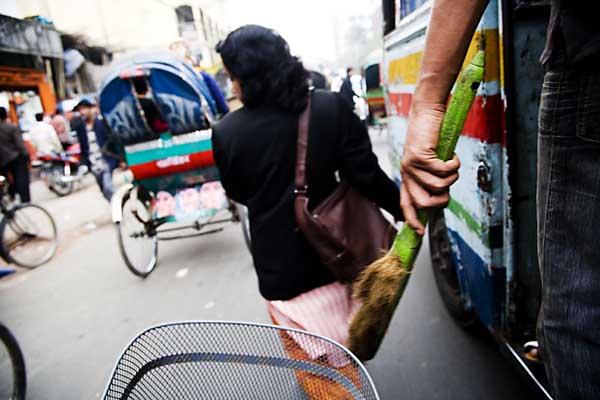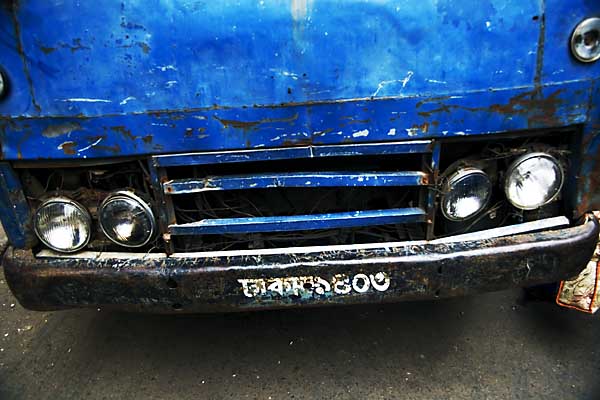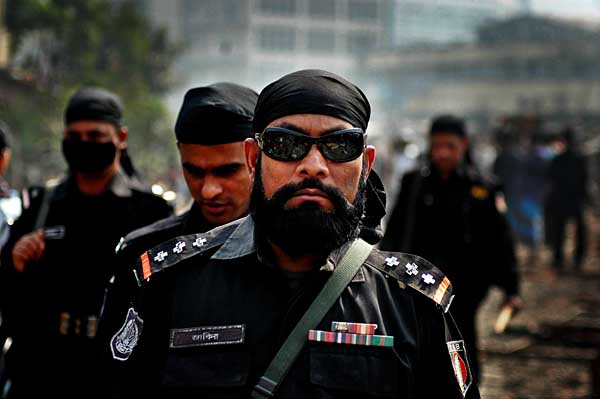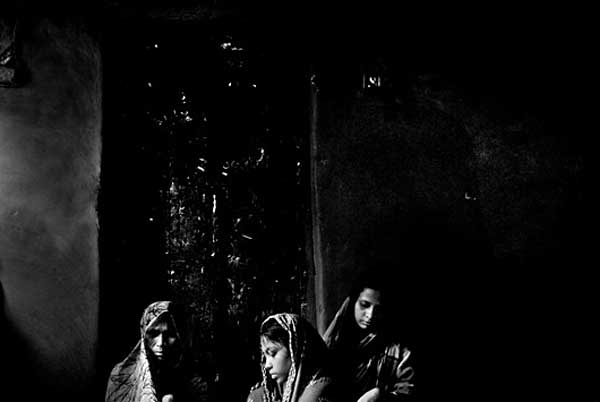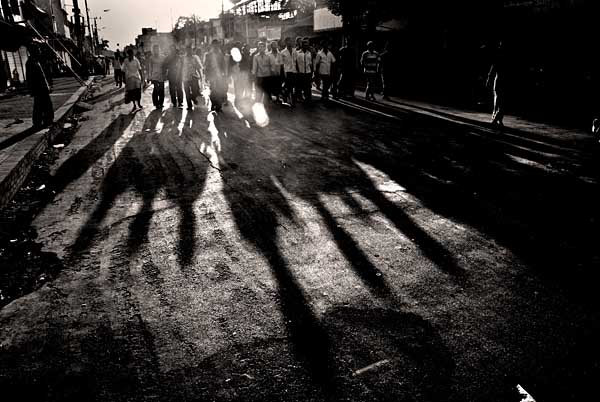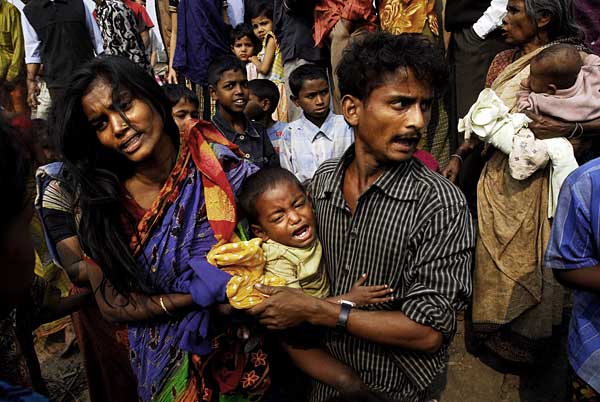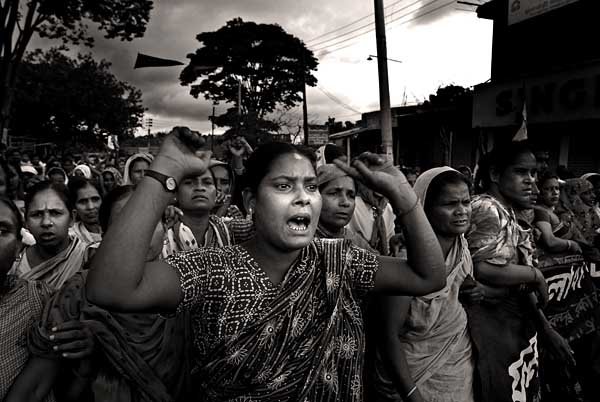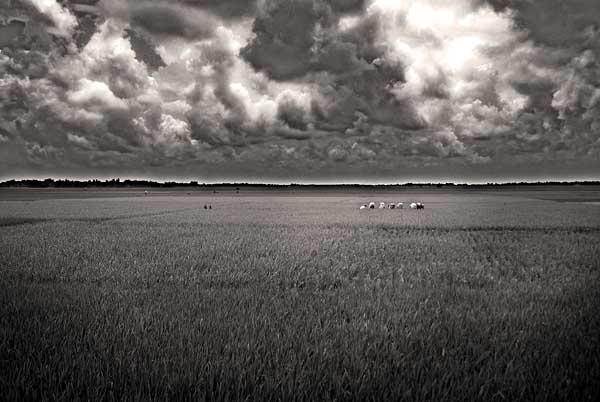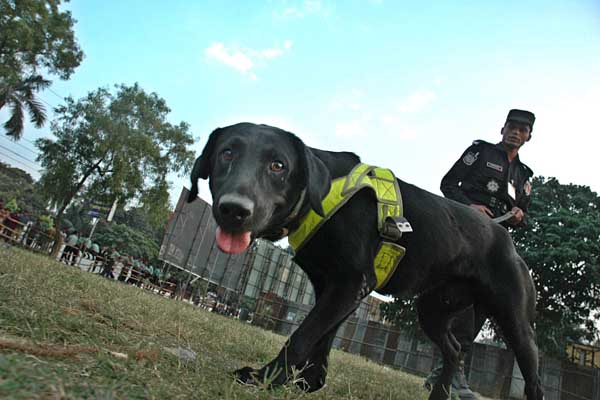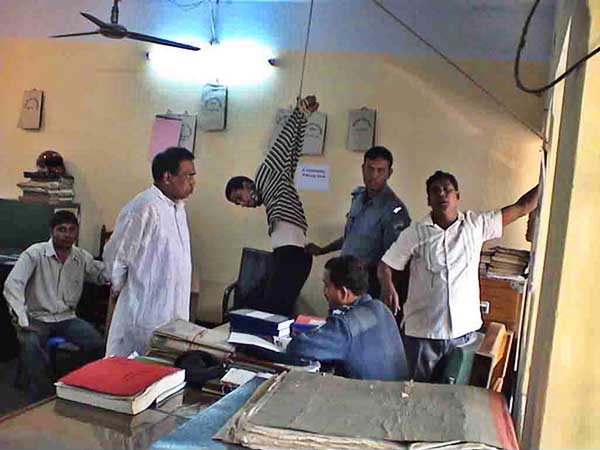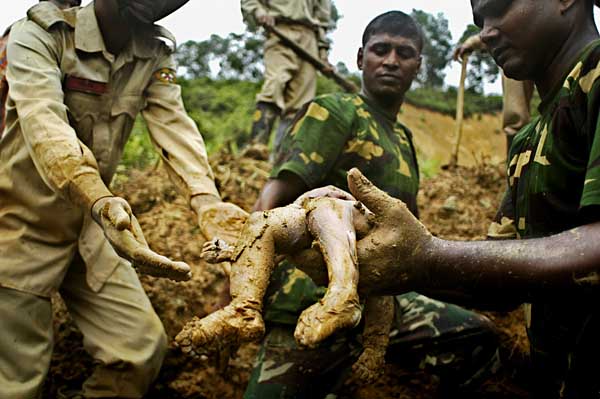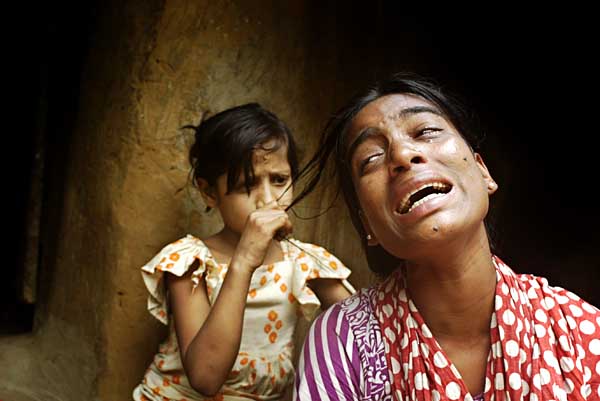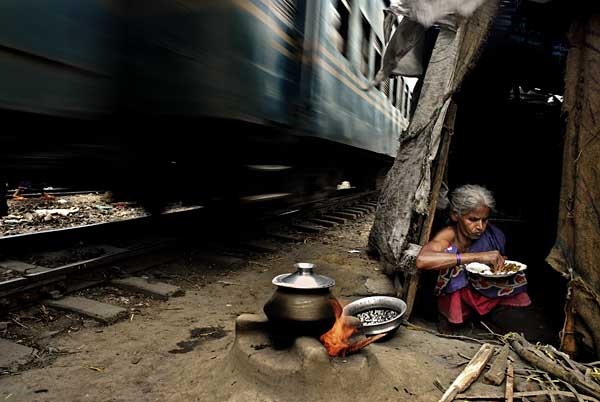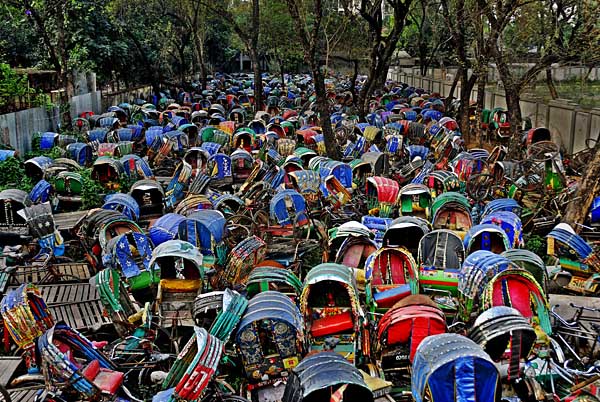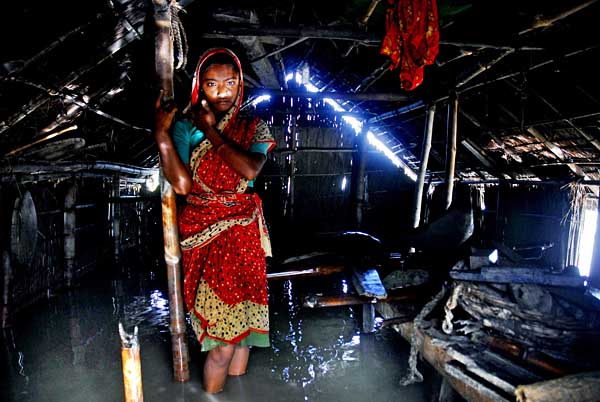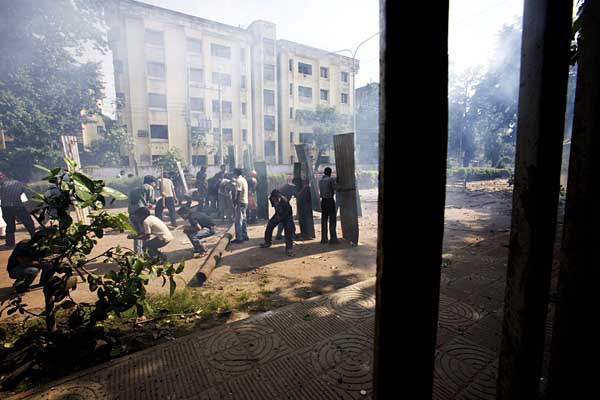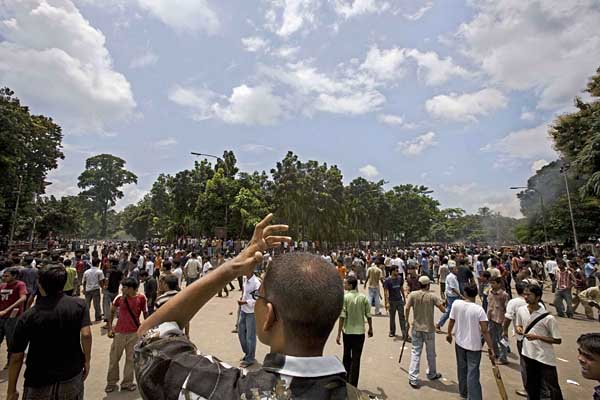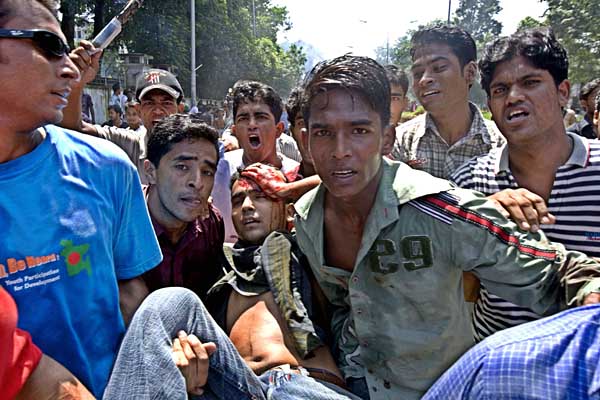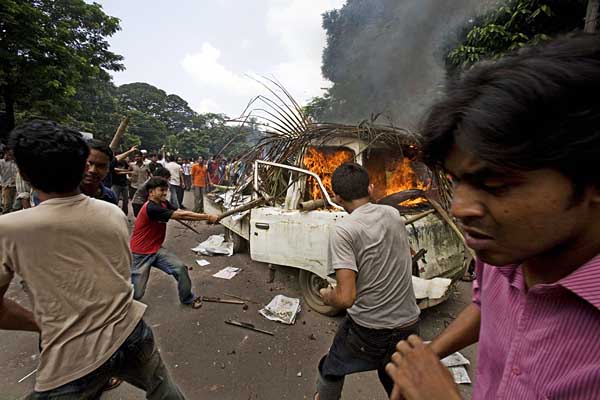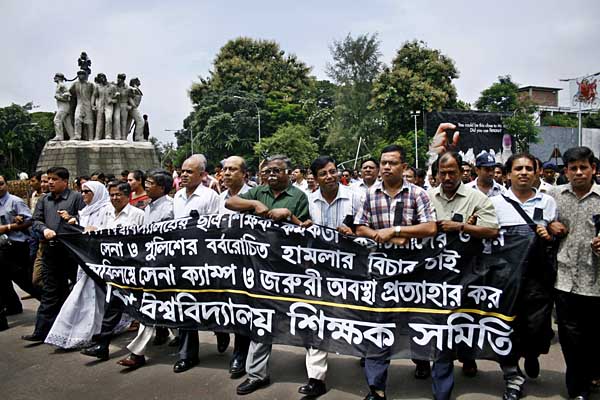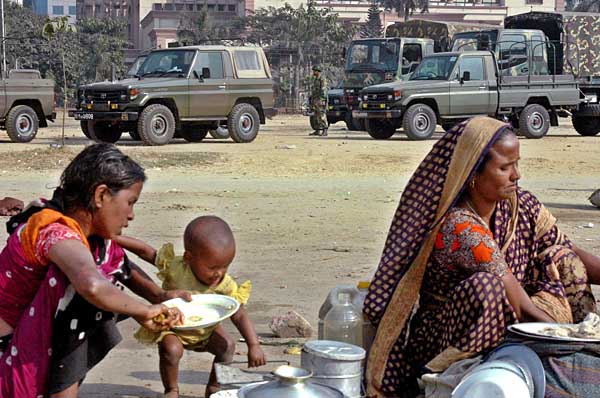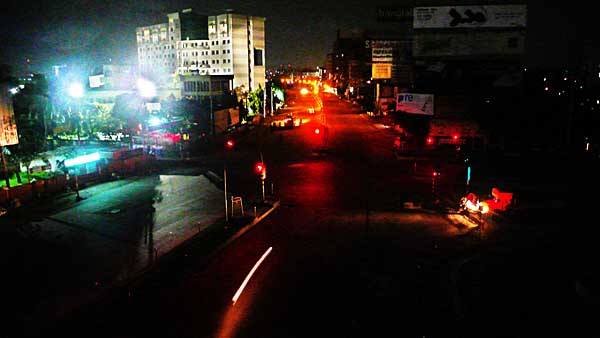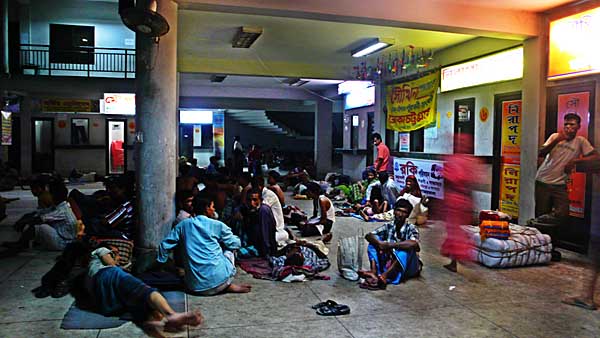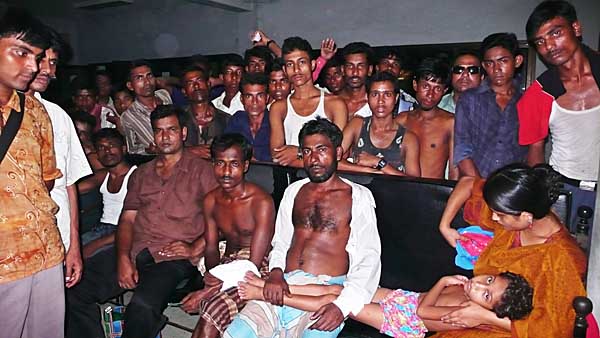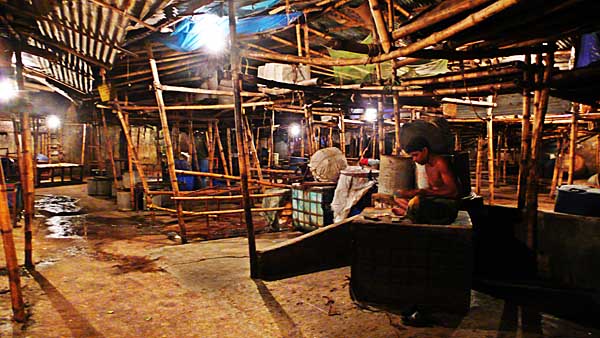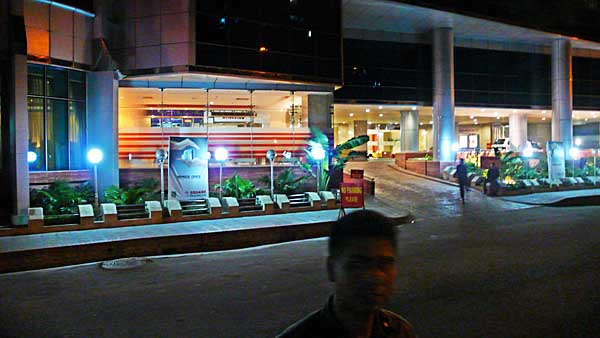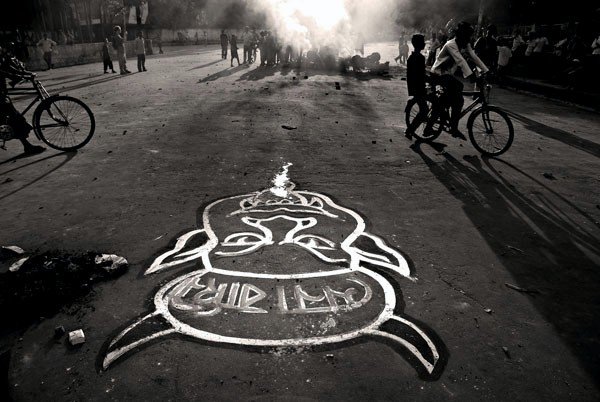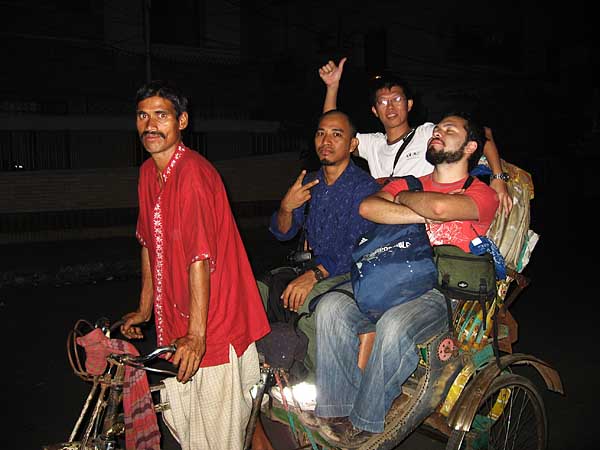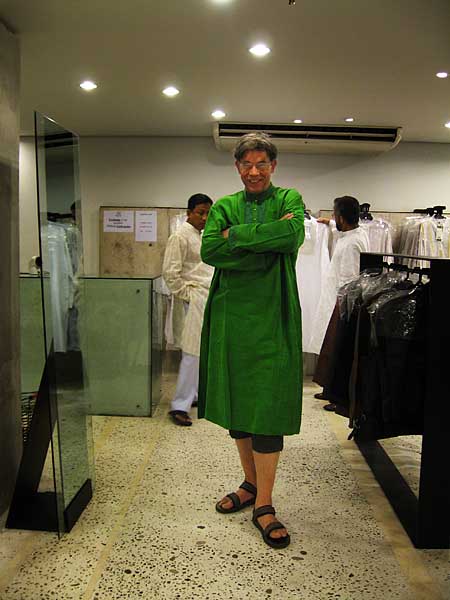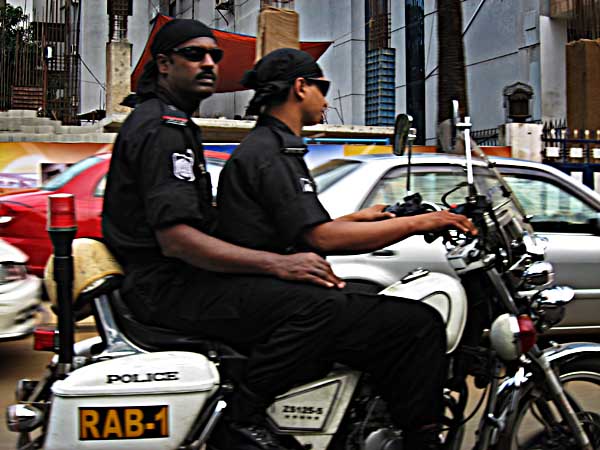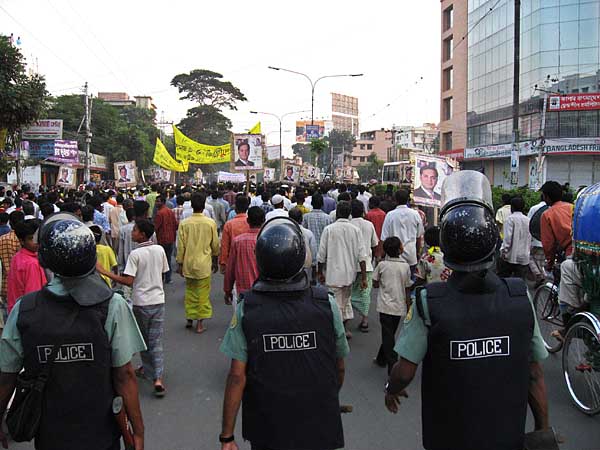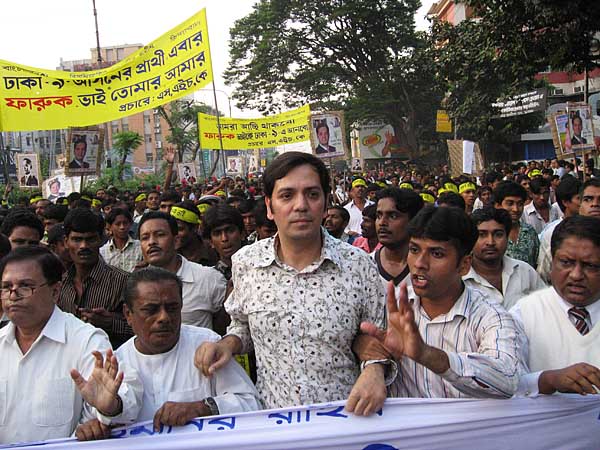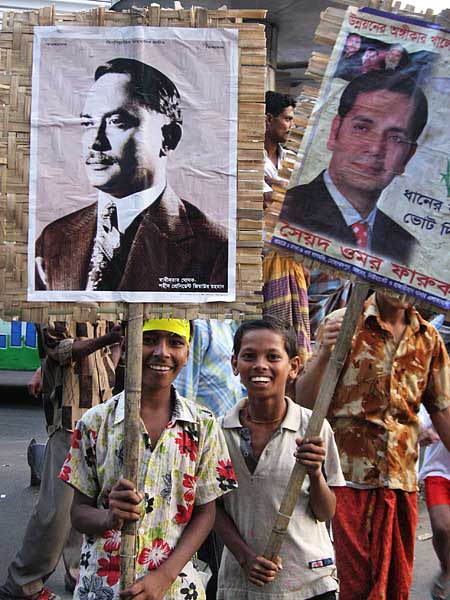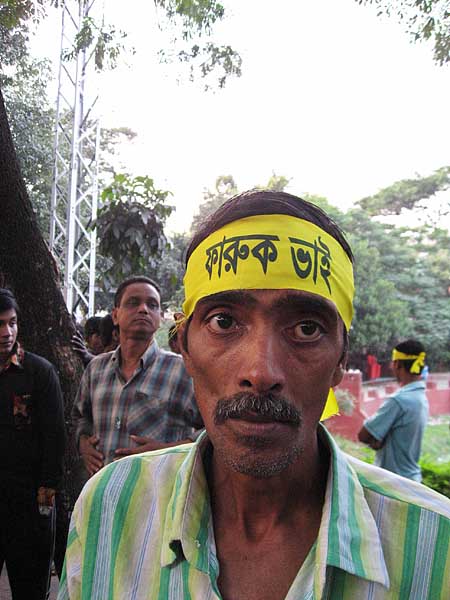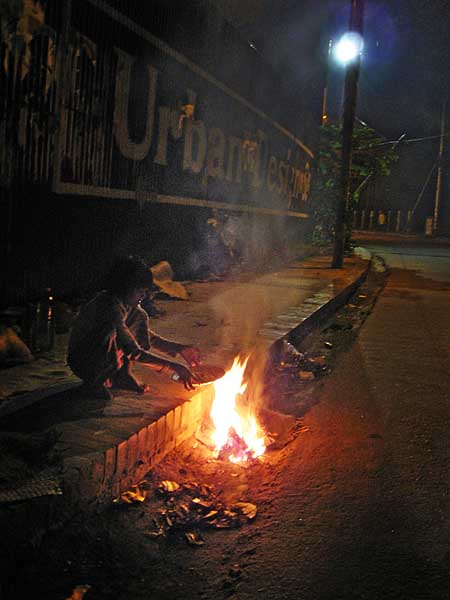Rahnuma Ahmed
After all, one cannot permit the feud between the two parties to destroy the nation. We must dedicate ourselves to higher causes instead. Our bodies and souls must be dedicated to the defense of empire, and to its interests.
`Shamorik, Beshamorik o Jameson’er Ccholke Pora Totto,’ Shomokal, July 4, 2007.
I had written these words nearly a year and a half ago. I wish I had been wrong.
The words were based on my readings of the `universalisation’ of the US empire’s interests throughout the world by means of armed coercion and ideological hegemony, and my interpretation of political events at home. At the sudden installation of the military-backed caretaker regime on 11 January 2007, and at the Chief Advisor’s vows: to crackdown on corruption and establish the rule of law, and to initiate strict reforms aimed at ensuring long-term stability and restoring democracy in national politics.
Before the installation of the Fakhruddin-led government, before the scheduled January 2007 national elections, even before late 2006 when some of the streets of Dhaka city had turned into battle-fields of opposing political parties, Western diplomats in Dhaka had been frenziedly active. Particularly the US Ambassador Patricia Butenis, and the British High Commissioner Anwar Chowdhury. But I must not fail to mention other western diplomats, those from the EU and from western European nations, from Canada, and from Australia. And how can one ever forget Ms Renata Dessalien, the UN’s Resident Coordinator? Even the blind, I felt, could not fail to notice the fury and madness that seemed to possess these western diplomats: holding discussions and meetings with politicians, some of these closed-door, making off-the-cuff statements to press and television reporters, constantly advising and preaching to the politicians, to the nation at large. On occassions, the Indian High Commissioner too, had joined in the fray.
It was a frenzy that did not abate with the installation of the interim government. It is a frenzy that still continues. Later entrants to this proselytising club have been the diplomats of some of the Muslim nations, happen-chance choir boys to western soloists.
I have friends who are cynical, who think that western diplomats posted in Dhaka — for them ‘outposts’ — are from far worse outposts themselves, that they do not possess much in the way of education, culture, and refinement, that they have probably not read the Vienna Convention and hence are totally unaware of the norms of diplomacy that are obligatory. One of them even said, maybe they don’t know of it’s existence? Hey, what about doing a questionnaire survey…? Another friend chipped in, you know, in some ways they are quite similar to our politicians, these diplomats are also surrounded by sycophants, by our politicians, writers, university teachers, lawyers, journalists, NGO and development-wallahs, they seem to hang on to every word that they say.
But I think these `reasons’ let them off too easily. I also see no reason to deny the bitter hostility between the two main political parties, a hostility that was aggravated by the 2004 assassination attempt on Sheikh Hasina outside the Awami League party office in Gulistan. One that was further deepened by Prime Minister Khaleda Zia’s accusation that the `militants’ behind the grenade attacks were `accomplices’ of the AL. Of gnawing suspicions of poll-rigging, ones that became increasingly clearer as the parliamentary elections to be held under the caretaker government of president Iajuddin Ahmed in January 2007 approached. Accusations and counter-accusations have been heaped on to fractures that divide the nation, that are deeply embedded in the nation’s political history of autocratic civilian governments, preceded or followed by military dictators. A nation that faced a threat at birth when the US Seventh Fleet entered the Bay of Bengal in 1971, days before independence, and yet again, suffered more grievously, in August 1975, when Sheikh Mujibur Rahman, the father of the nation, and most of his family members, were assassinated. The US Secretary of State, Henry Kissinger’s name has forever remained linked with the coup’s conspirators.
I do not know whether any of the western diplomats had stoked the fires of intolerance that was on display on either side, in late 2006. But I do know from newspaper reports that Ms Butenis had been present at a luncheon meeting organised by the Jamaat-e-Islami leadership, where a video film on the violent events of 28 October 2006 was screened.
A question that is hardly raised, let alone discussed in `civil society’ forums, deliberating endlessly on the urgent need for national unity, is: is the unity to be forged against the west’s imperial interests, or is it to be accomplished to serve these interests further? What paths are open to us? What are the consequences of the paths that we tread upon, for us and for our future generations?
Footprints in the sand
The cat was let out of the bag by the World Bank’s Vice-President Praful C Patel, on a visit to Dhaka, in December 2007. “What [had] looked possible before,” said Patel, “like the minus-two approach,” no longer seems possible. The leaders of AL and BNP have a “very strong and powerful power base.” Rumors that the caretaker government was attempting to apply the minus two formula had been circulating for months, only to be vehemently denied. The government had insisted that it only sought to create a level playing field, one in which all political parties could participate freely and fairly. Strategies for restoring democracy to Bangladesh, it seems, were being planned most undemocratically.
And, of course, there was the slip made by the more-than-voluble British High Commissioner to Bangladesh, who had commented on the Dhaka university student protests of August 2007, protests that had spread to other public universities and educational institutions, and was later brutally put down by the army with the imposition of curfew. “Initially spontaneous,” these protests, said Mr Choudhury, had signalled “something much bigger, something much sinister.” He had felt obliged to inform us, “A lot of money and co-ordination came into the equation.”
Ms Butenis has been succeeded by James Francis Moriarty, in the words of the well-known Nepalese journalist Kanak Mani Dixit, “an American cowboy in a Nepali china shop.” Dixit should know since Mr Moriarty had been the US ambassador to Nepal (2004-2007), before being posted to Bangladesh. In response to reports of the infamous killings and destruction of property in Kapilavastu in the Terai by death squads, based on Latin American paramilitary “death squad” models, Moriarty is reported to have said, it was a reason for “optimism.” Later, when confronted with this report and asked for further comments, he had said, his main concern was that the Royal Nepalese Army (RNA) was running out of bullets. As US ambassador to Nepal, Mr Moriarty is reported to have visited army camps, to have frequently given speeches about domestic political affairs, to have visited Nepal’s Terai region, to have instigated Madhesi leaders to take actions against the Maoists, and to have machinated to get the Seven Party Alliance to break their pact with the Maoists.

The US ambassador to Bangladesh, James F Moriarty, at a meeting with the foreign adviser to the military-controlled interim government, Iftekhar Ahmed Chowdhury? Since arriving in Bangladesh, the mantle of frenzied diplomatic activity seems to have fallen on Mr Moriarty.
? Focusbangla photo
The US military involvement in Nepal is said to have increased considerably after Christina Rocca was appointed the Assistant Secretary of State for South Asia in 2001. (Ms Rocca is familiar to many Bangladeshis, too). Millions of dollars have been pumped into building-up Nepal’s security forces, military exchange programs have been expanded, the Royal Nepalese Army has increased in numbers, from 35,000 before 2001, to 100,000 in 2005, with further increases of up to 150,000 projected for this year. Permanent headquarters have been built for US `advisers’ adjacent to RNA headquarters in Kathmandu’s city centre. The US army has trained Nepalese security forces in `special operations’ through its International Military Education and Training (IMET) Program. In 2003, Ms Rocca is reported to have tabled the proposition that RNA troops be sent to Iraq. This was politely declined by the Nepalese government, but it had gone on to request for “more weapons, helicopters, surveillance equipment that would enable the army to find and kill the revolutionary leadership, and the continuation of counter-insurgency training.”
Since arriving in Bangladesh, the mantle of frenzied diplomat-ic activity has fallen on Mr Moriarty, who has made visits from madrasas in Rangpur to the Kumudini Welfare Trust complex in Tangail, to holding meetings with AL, BNP, Jatiya party and Jamaat’s local-level politicians in Rangpur, discussing their present organisational structures, all in the interests of `strengthening democracy.’ There are other newspaper reports too. Recently, representatives of US Department of Homeland Security, US Pacific Command, and US Border Patrol completed a survey on border security in Bangladesh. According to reports, the Bangladesh government has not yet been informed of the details of the survey.
National unity? Of course. But in whose interests?
——————————————————————————————
First published in New Age on 22nd December 2008







